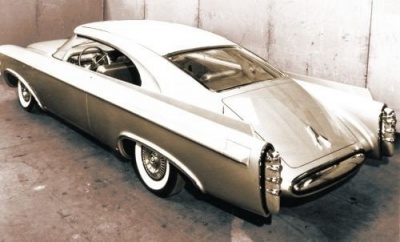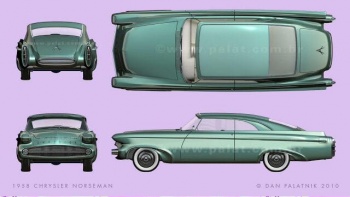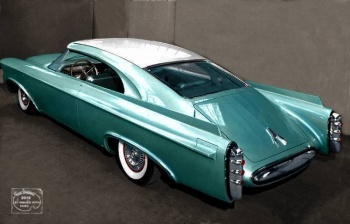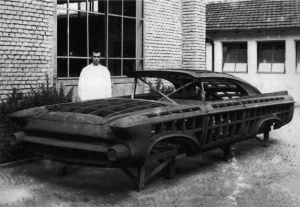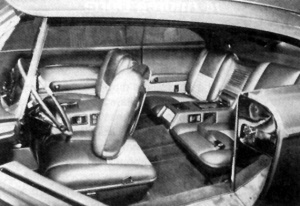Difference between revisions of "Chrysler Norseman"
Old Hippie (talk | contribs) |
|||
| (19 intermediate revisions by one other user not shown) | |||
| Line 1: | Line 1: | ||
| − | |||
| − | |||
| − | |||
| − | |||
| − | |||
| − | |||
| − | |||
| − | |||
| − | |||
[[Category:Dream Cars]] <!-- delete this line for new Wiki --> | [[Category:Dream Cars]] <!-- delete this line for new Wiki --> | ||
[[Category:Models]] <!-- change the word Car-Model-Template to the model's name for new Wiki --> | [[Category:Models]] <!-- change the word Car-Model-Template to the model's name for new Wiki --> | ||
| Line 16: | Line 7: | ||
[[Image:NorsemanBW.jpg|center|400px|Chrysler Norseman Dream Car]] <!-- Main photo at top of page--> | [[Image:NorsemanBW.jpg|center|400px|Chrysler Norseman Dream Car]] <!-- Main photo at top of page--> | ||
| − | {{Template: | + | {{Template:TopWiki}} <!-- Do not remove this line --> |
| − | |||
| − | |||
| − | |||
| − | |||
| − | |||
| − | + | Norsemen were a group of people who lived between the 8th and 11th centuries and who spoke what is now called the Old Norse language. Norseman means "man from the North" and applied primarily to Old Norse-speaking tribes living in southern and central Scandinavia. However this wiki is about the 1956 Chrysler Norseman Dream Car. After a few years of development prototypes and low-volume specials, [[Chrysler]] finally commissioned [[Ghia]] to build a full show car in 1956. The Chrysler Norseman was to be "the most automated car in the world". | |
| − | + | When Ghia was fished building, the car was carefully packed into a wooden crate and loaded on the Italian Luxury Liner ''SS Andrea Doria'' for its cross Atlantic trip to New York. The ship collided with the ''Stockholm'' 40 Miles off the coast of Nantucket, and it sank 11 hours later. At the time, [[Virgil Exner]] was in the hospital recovering from a heart attack. Associated Press' summed up the loss of the Norseman short and sweet by reporting: | |
| − | + | ''The experimental car was built for Chrysler in Turin, Italy, and was being shipped to the United States for public showing. A Chrysler spokesman said Friday the Norseman cost about $200,000, including a year's engineering work. It was insured.'' | |
| − | + | There has been a dispute on the colors as only a few photos, and none in color, exist of the car. Exner ordered the car to be Silver, those seeing it being loaded on the ship say it was a tu-tone blue with red interior, and others at [[Chrysler]] say it was tu-tone Green with green and gray interior. | |
| − | + | There was a brief consideration was given to building a second Norseman, but the time needed to do this would have meant the car would not be available until late 1957 or early 1958. The fast pace of auto design would have rendered a second Norseman as obsolete by the time it was ready, so that idea was nixed. | |
| − | |||
[[Image:Notseman.jpg|thumb|350px|right|Chrysler Norseman Dream Car]] | [[Image:Notseman.jpg|thumb|350px|right|Chrysler Norseman Dream Car]] | ||
| Line 38: | Line 23: | ||
[[Image:Norseman4.jpg|thumb|350px|right|Chrysler Norseman Dream Car]] | [[Image:Norseman4.jpg|thumb|350px|right|Chrysler Norseman Dream Car]] | ||
| − | |||
| − | + | == Background of The Exner Era [[Dream Cars]] == <!-- Do not remove this line As it is a heading --> | |
| − | == Background of The Exner Era Dream Cars == <!-- Do not remove this line As it is a heading --> | ||
=== Quick History of Exner === | === Quick History of Exner === | ||
| Line 51: | Line 34: | ||
In 1949, Chrysler President [[K. T. Keller]] hired Exner away from Studebaker for the purpose of designing cars that would improve Chrysler's stodgy image. The Chrysler Corporation was well known for its engineering firsts, but not its styling. The Chrysler Corporation's "Small on the Outside - Big on the Inside" designs looked ancient when compared to the 49 Ford and GM offerings. Keller wanted the cars designed to where a man could drive with his hat on. This made the cars appear too tall. | In 1949, Chrysler President [[K. T. Keller]] hired Exner away from Studebaker for the purpose of designing cars that would improve Chrysler's stodgy image. The Chrysler Corporation was well known for its engineering firsts, but not its styling. The Chrysler Corporation's "Small on the Outside - Big on the Inside" designs looked ancient when compared to the 49 Ford and GM offerings. Keller wanted the cars designed to where a man could drive with his hat on. This made the cars appear too tall. | ||
| − | At first Exner worked secretly on Advance Designs, but was soon promoted to head the studio. The model year designs were already locked in through 1954, so Exner began work on the 1955 model, the first year of the "Forward Look" designs. | + | At first Exner worked secretly on [[Advance Designs]], but was soon promoted to head the studio. The model year designs were already locked in through 1954, so Exner began work on the 1955 model, the first year of the "[[Forward Look]]" designs. |
| − | Keller and Exner agreed that they should step up Chrysler's showing of Dream Cars to compete with Harley Earl's million dollar dream cars displayed in the Motorama shows. They felt this would create excitement with the public on updated designs that would hit the showrooms in the future. However, they would have to do it on a budget no where near the size GM had given Earl. | + | Keller and Exner agreed that they should step up Chrysler's showing of Dream Cars to compete with Harley Earl's million dollar dream cars displayed in the [[Motorama shows]]. They felt this would create excitement with the public on updated designs that would hit the showrooms in the future. However, they would have to do it on a budget no where near the size GM had given Earl. |
=== Exner and Ghia === | === Exner and Ghia === | ||
| − | While working on his first of the Chrysler Dream Cars, the [[K-310]], Exner and his design team were at an impasse. On a previous trip to Italy, K. T Keller commissioned both Pininfarina and Ghia to each build a car of his loose design specs, but allowed them design creativity. The purpose was not to test their design skills, but to test them for quality, fit and finish. | + | While working on his first of the Chrysler Dream Cars, the [[K-310]], Exner and his design team were at an impasse. On a previous trip to Italy, K. T Keller commissioned both [[Pininfarina]] and Ghia to each build a car of his loose design specs, but allowed them design creativity. The purpose was not to test their design skills, but to test them for quality, fit and finish. |
Knowing that the Exner team was having trouble with K-310, Keller invited the team to view the cars that had just arrived from Italy. Pininfarina had closely followed the specs, while Ghia took great liberties with their allowed creativity. Ghia's car was very impressive. The Ghia submission was also far better in quality, fit an finish than the submission from Pininfarina. It was to became the [[Plymouth XX-500]] show car. In addition to Ghia's craftsmanship, their design abilities were a pleasant surprise. | Knowing that the Exner team was having trouble with K-310, Keller invited the team to view the cars that had just arrived from Italy. Pininfarina had closely followed the specs, while Ghia took great liberties with their allowed creativity. Ghia's car was very impressive. The Ghia submission was also far better in quality, fit an finish than the submission from Pininfarina. It was to became the [[Plymouth XX-500]] show car. In addition to Ghia's craftsmanship, their design abilities were a pleasant surprise. | ||
| Line 67: | Line 50: | ||
== Designer == | == Designer == | ||
| − | [[Virgil Exner]] | + | [[Cliff Voss]] and [[William Brownlie]] under the direction of [[Virgil Exner]] |
| + | |||
| + | == Chassis == | ||
| − | + | The [[chassis]] was a modified 1955 Chrysler. [[Suspension]] was [[torsion bar]]s in front and leaf springs in back. Torsion bars were employed for the 1957 Chryslers, so the presence of the setup on the show car seems logical. The [[wheelbase]] stretched from 126 to 129 inches and had a full under pan to reduce under car air resistance. | |
== Body == | == Body == | ||
| − | The | + | [[Image:NorsemanBuck.jpg|thumb|300px|Wooden buck used to form Aluminum body panels for the Norseman]] |
| + | |||
| + | The most unusual feature of the Norseman was its [[cantilever]] [[Fastback]] roof. The roof was made of a special glass by PPG for strength in a rollover, and 1/4" steel rods in place of the [[A-Pillars]]. In theory the rods were to break and cause the roof to snap back in the event of a roll over. Additionally, the roof had a couple of novelty features. One was a brushed aluminum insert and the other was a 12-square foot [[backlight]] that could be retracted forward into the roof via an electrical switch. Fresh air intakes for the passenger compartment were located in the leading edge of the roof, too. | ||
| + | |||
| + | 50,000 man-hours and approximately $150,000 to design and build the Norseman. [[Body panels]] were hand formed aluminum over wooden bucks. Ghia required 15 months to construct the car. The front view featured Clamshell style hidden headlights with a full-width concave grille. A thin bumper located along the horizontal center line was capped at each end with pod-mounted parking lights. There was a valance panel underneath the assembly. The look of the front resembled the nose of a shark. | ||
| + | |||
| + | The body also featured circular rear wheel openings, much like the Limited Production Buick Skylark. The car was devoid of door handles, and instead had push buttons like the '40s Lincoln. The view from the rear of the Norseman was also sensational. Other than its retractable backlight, this show car also featured elliptical nacelles housing chrome-plated [[bumperettes]] each with small, round stacked taillights. The fin on the driver’s side ended with the fuel-filler door. | ||
== Interior == | == Interior == | ||
| + | |||
| + | [[Image:NorsemanInterior.jpg|thumb|300px|Norseman Interior]] | ||
The leather interior of four [[bucket seats]] and futuristic gauge pods -- with some type of luminescent paint on the back of the front seats for a lighting experiment. | The leather interior of four [[bucket seats]] and futuristic gauge pods -- with some type of luminescent paint on the back of the front seats for a lighting experiment. | ||
| + | |||
| + | Inside the Norseman were even more spectacular features. Its seating consisted of four power-assisted bucket-type seats covered in metallic light green leather with either contrasting gray or gray-green inserts. Each pair of seats was separated by a console with a glove box. Also incorporated into these consoles was a retractor for the buckle component of the seat belts; the other half of the reel-type seat belts retracted into the side of the front seats and probably the quarter trim panels in back. Interior lamps also appear to have been installed within the individual consoles. An experimental form of lighting was luminescent paint applied to the back side of the Norseman's front seats. Instrumentation was suspended from the padded dash in pods and a small writing desk could be pulled out from underneath the passenger side glove box. Satin finish metal trim wrapped around from the door panels to the dash. | ||
== Drivetrain == | == Drivetrain == | ||
| Line 93: | Line 88: | ||
== Reference == | == Reference == | ||
| − | * | + | * Wikipedia http://en.wikipedia.org/wiki/Chrysler_Norseman Wikipedia |
| + | * Coach Build http://www.coachbuild.com/index.php?option=com_gallery2&Itemid=50&g2_itemId=43728 | ||
| + | * DWT http://dwtauthor.blogspot.com/2011/05/ghost-of-norseman.html | ||
== Internet Links == | == Internet Links == | ||
| − | + | {{Template:BottomWikiHippieAds}} <!-- Do not remove this line --> | |
| − | |||
| − | {{Template: | ||
Latest revision as of 21:11, 9 May 2023
Norsemen were a group of people who lived between the 8th and 11th centuries and who spoke what is now called the Old Norse language. Norseman means "man from the North" and applied primarily to Old Norse-speaking tribes living in southern and central Scandinavia. However this wiki is about the 1956 Chrysler Norseman Dream Car. After a few years of development prototypes and low-volume specials, Chrysler finally commissioned Ghia to build a full show car in 1956. The Chrysler Norseman was to be "the most automated car in the world".
When Ghia was fished building, the car was carefully packed into a wooden crate and loaded on the Italian Luxury Liner SS Andrea Doria for its cross Atlantic trip to New York. The ship collided with the Stockholm 40 Miles off the coast of Nantucket, and it sank 11 hours later. At the time, Virgil Exner was in the hospital recovering from a heart attack. Associated Press' summed up the loss of the Norseman short and sweet by reporting:
The experimental car was built for Chrysler in Turin, Italy, and was being shipped to the United States for public showing. A Chrysler spokesman said Friday the Norseman cost about $200,000, including a year's engineering work. It was insured.
There has been a dispute on the colors as only a few photos, and none in color, exist of the car. Exner ordered the car to be Silver, those seeing it being loaded on the ship say it was a tu-tone blue with red interior, and others at Chrysler say it was tu-tone Green with green and gray interior.
There was a brief consideration was given to building a second Norseman, but the time needed to do this would have meant the car would not be available until late 1957 or early 1958. The fast pace of auto design would have rendered a second Norseman as obsolete by the time it was ready, so that idea was nixed.
Contents
Background of The Exner Era Dream Cars
Quick History of Exner
In 1932, A 23-year-old Virgil Exner was hired by GM's Art and Color Studio. Boss, Harley Earl immediately recognized Exner's design talent. Two years later Enxer was put in charge of the entire Pontiac Studio, a job he kept until 1939 when Raymond Lowry hired him to work on his studio's design contract with Studebaker. Exner worked with Lowry and Studebaker all through WWII, and when the highly advanced 47 Studebaker's were shown to the public in 1946, they were touted as "The First By Far With A Post War Car. It would be the 1949 Model year when the "Big Three" would catch up.
A dispute between Lowry and Exner over credit for the design of the 52 Studebaker caused Exner's firing. Studebaker wasnt impressed with the Lowry proposal for the 52s, and Exner showed them a design he'd been working on at home on his own time. Studebaker liked it and Lowry wanted credit for his employee's work. He was fired when he refused, but Studebaker picked Exner up for their in-house design team. There was little love between Lowry and Exner for the rest of each of their lives.
In 1949, Chrysler President K. T. Keller hired Exner away from Studebaker for the purpose of designing cars that would improve Chrysler's stodgy image. The Chrysler Corporation was well known for its engineering firsts, but not its styling. The Chrysler Corporation's "Small on the Outside - Big on the Inside" designs looked ancient when compared to the 49 Ford and GM offerings. Keller wanted the cars designed to where a man could drive with his hat on. This made the cars appear too tall.
At first Exner worked secretly on Advance Designs, but was soon promoted to head the studio. The model year designs were already locked in through 1954, so Exner began work on the 1955 model, the first year of the "Forward Look" designs.
Keller and Exner agreed that they should step up Chrysler's showing of Dream Cars to compete with Harley Earl's million dollar dream cars displayed in the Motorama shows. They felt this would create excitement with the public on updated designs that would hit the showrooms in the future. However, they would have to do it on a budget no where near the size GM had given Earl.
Exner and Ghia
While working on his first of the Chrysler Dream Cars, the K-310, Exner and his design team were at an impasse. On a previous trip to Italy, K. T Keller commissioned both Pininfarina and Ghia to each build a car of his loose design specs, but allowed them design creativity. The purpose was not to test their design skills, but to test them for quality, fit and finish.
Knowing that the Exner team was having trouble with K-310, Keller invited the team to view the cars that had just arrived from Italy. Pininfarina had closely followed the specs, while Ghia took great liberties with their allowed creativity. Ghia's car was very impressive. The Ghia submission was also far better in quality, fit an finish than the submission from Pininfarina. It was to became the Plymouth XX-500 show car. In addition to Ghia's craftsmanship, their design abilities were a pleasant surprise.
This began the long relationship between Chrysler and Ghia, and more importantly - collaboration between their designers.
Designer
Cliff Voss and William Brownlie under the direction of Virgil Exner
Chassis
The chassis was a modified 1955 Chrysler. Suspension was torsion bars in front and leaf springs in back. Torsion bars were employed for the 1957 Chryslers, so the presence of the setup on the show car seems logical. The wheelbase stretched from 126 to 129 inches and had a full under pan to reduce under car air resistance.
Body
The most unusual feature of the Norseman was its cantilever Fastback roof. The roof was made of a special glass by PPG for strength in a rollover, and 1/4" steel rods in place of the A-Pillars. In theory the rods were to break and cause the roof to snap back in the event of a roll over. Additionally, the roof had a couple of novelty features. One was a brushed aluminum insert and the other was a 12-square foot backlight that could be retracted forward into the roof via an electrical switch. Fresh air intakes for the passenger compartment were located in the leading edge of the roof, too.
50,000 man-hours and approximately $150,000 to design and build the Norseman. Body panels were hand formed aluminum over wooden bucks. Ghia required 15 months to construct the car. The front view featured Clamshell style hidden headlights with a full-width concave grille. A thin bumper located along the horizontal center line was capped at each end with pod-mounted parking lights. There was a valance panel underneath the assembly. The look of the front resembled the nose of a shark.
The body also featured circular rear wheel openings, much like the Limited Production Buick Skylark. The car was devoid of door handles, and instead had push buttons like the '40s Lincoln. The view from the rear of the Norseman was also sensational. Other than its retractable backlight, this show car also featured elliptical nacelles housing chrome-plated bumperettes each with small, round stacked taillights. The fin on the driver’s side ended with the fuel-filler door.
Interior
The leather interior of four bucket seats and futuristic gauge pods -- with some type of luminescent paint on the back of the front seats for a lighting experiment.
Inside the Norseman were even more spectacular features. Its seating consisted of four power-assisted bucket-type seats covered in metallic light green leather with either contrasting gray or gray-green inserts. Each pair of seats was separated by a console with a glove box. Also incorporated into these consoles was a retractor for the buckle component of the seat belts; the other half of the reel-type seat belts retracted into the side of the front seats and probably the quarter trim panels in back. Interior lamps also appear to have been installed within the individual consoles. An experimental form of lighting was luminescent paint applied to the back side of the Norseman's front seats. Instrumentation was suspended from the padded dash in pods and a small writing desk could be pulled out from underneath the passenger side glove box. Satin finish metal trim wrapped around from the door panels to the dash.
Drivetrain
Power came from a 331 CI Hemi rated at 235hp, with a 2-speed Powerflite transmission, and shifted by push-buttons.
Car Shows
Movies Appeared in
Magazine Articles
- August 2009 Hemmings Classic Car
Reference
- Wikipedia http://en.wikipedia.org/wiki/Chrysler_Norseman Wikipedia
- Coach Build http://www.coachbuild.com/index.php?option=com_gallery2&Itemid=50&g2_itemId=43728
- DWT http://dwtauthor.blogspot.com/2011/05/ghost-of-norseman.html
Internet Links
Random Page | Longest Wikis | Oldest Wikis | Newest Images | Newest Wikis | List of Categories | List of Every Freakin Wiki
- Register to Edit
- It takes less than 5 minutes to request registration for editing, and we try to approve within 24 hours. Click the Register Link in the Top Bar.
- MoparWiki Help
- While editing Wikis may at first glance appear a little overwhelming, it really isn't. You will find this site's HELP (link found in the sidebar) to be very strong and easy to understand. The best way to start is with small edits and working on your user page -- and you will become a Pro in no time.
